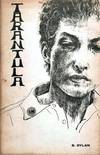Hamburg, Leipzig (Hamburgi et Lipsiae), Impensis Christiani Liebezeit, 1716. 4to. (XIV),664,(64 index) p., 1 engraved plate. Vellum 21.5 cm (Ref: VD18 15351424; Brunet 2,1154; cf. Ebert 7274; C. Bursian, 'Geschichte der classischen Philologie', Munchen/Leipzig 1883, vol. 1, p. 360/61: 'eine Sammlung von Büchertiteln und sonstigen Notizen über hebrärische, griechische, römische und christliche Alterthümer') (Details: 6 thongs laced through both joints. Title printed in red and black. Good quality paper. The edges are dyed red. This book contains a plate, engraved by 'Kraus'. This must be the German engraver Johann Ulrich Kraus, 1655-1719, or his wife Johanna Sibylla, ca. 1650-1717. 'Kraus Stil is ganz im Zeitgeschmack des Hochbarock an französischen Vorbilder orientiert'. (NDB 12 689/90) This heavily ornamented plate illustrates a chapter in the book on the Roman Apotheosis funeral rite, which led to the deification of Roman rulers and their wives. It depicts a smoking funeral pyre, in the shape of an enormous modern wedding cake; the pyre is surrounded by Roman soldiers, priests etc. In most copies we know of this book this plate is bound before the title, and functions there as a kind of frontispiece) (Condition: Vellum soiled. Right margin of the title is thumbed. The turn-in strip at the outer margin of the inside of the lower board is loosening) (Note: The late 17th century was for classical scholarship the age of epigones, men who were more compilators than great scholars. Classical scholars started to produce (often voluminous) editions of Greek and Latin authors, packed 'cum notis Variorum', others produced enormous surveys and summaries, for instance classicists like Jacobus Gronovius, who published his huge 13 volume 'Thesaurus Antiquitatum Graecarum' (1697/1703), and Johannes Georgius Graevius, who compiled a 'Thesaurus Antiquitatum Romanarum', (1694-1699) in 12 huge volumes. Such processing of knowledge was only useful, because 'sie literarische Zeugnisse für zahllose Einzelerscheinungen des antiken Lebens, grosse und ganz geringe, mit saurem Schweisse sammelte und nach Kräften ordnete'. (U. von Wilamowitz-Moellendorff, 'Geschichte der Philologie', Lpz./Bln. 1921, p. 33) Wilamowitz, perhaps the greatest classical scholar ever, strongly disapproved of this kind of scholarship, because 'Vielwisserei' hampered progress. 'Wo das Können immer schwacher ward, galt das Wissen immer mehr, Polyhistorie war das Höchste, was man anstrebte. (...) Polymathie schafft keinen Verstand, hat schon Herakleitos gesagt'. (Idem, p. 34). A Polymath in the flesh was the German classical scholar and bibliographer Johann Albert Fabricius, 1668-1736, a man 'von staunenswerthem Fleiss und unermesslicher Belesenheit'. (Bursian p. 360) He was a celebrated bibliographer, and among the foremost among the German classical scholars of his time. His chef-d'oeuvre is the 'Bibliotheca Graeca', a bibliographic survey of Greek literature (1705-1728). The last edition of this work numbers 14 volumes. It displays an immense learning, and supplied the basis for all subsequent histories of Greek literature. It's bibliographic data are still useful for classical scholars. His 3 volume 'Bibliotheca Latina' (1708-1721) is on a more modest scale. Nevertheless, it still is a useful work of reference. Its last edition of 1773-1774 is still consulted by scholars, librarians and antiquarian booksellers, and it is more than once repeated or excerpted by later bibliographers, like Schweiger, Dibdin or Moss. Fabricius also produced a 'Bibliotheca Latina Ecclesiastica' (1718), and a 5 volume 'Bibliotheca Latina Mediae et Infimae Aetatis' (1734-1736). § Johann Albert Fabricius began to teach on the Gymnasium at Hamburg in 1699, and remained there until his death. There he collected 'in stiller mühsamer Einzelarbeit' his bibliographic material for Greek, Latin, Byzantine, and Medieval Latin literature. The NDB does not speak of the suffocation caused by the compiling 'epigones', but is full of praise. 'Diese zuverlässige, wohlgeordnete Sammelarbeit war unschätzbar nicht nur als Grundlage für die historische und kritische Arbeit der folgenden Generationen von Gelehrten, sodern auch als Arsenal für unsere Klassiker'. (NDB 4,732/33) NDB concludes with the statement that Fabricius equals 'doch als Polyhistor von unwahrscheinlicher Fruchtbarkeit' the great Leibniz. (steht in der Nähe des grossen Leibniz) The pupils on Fabricius' Gymnasium must have been diligent and brilliant, because he tells in the preface to this 'Bibliotheca Antiquaria' that it is a collection of private lectures, held for youngster who visited his school. It is a kind of encyclopedia, the approach of which is thematic. It consists of notices of the authors who had published on Jewish, Greek, Roman and ecclesiastical antiquities. For instance on 'antiquitates graecae' he refers to the general survey works of importance, including a 19 page table of contents of the 'Thesaurus Antiquitatum Graecarum' of Gronovius. The first 4 chapters discuss general works of writers on Jewish, Greek, Roman and christian antiquities. Chapter 5 is on geography, 6 on works describing ancient Rome, 7 on chronology, 8 on gods and saints, 9 on altars, temples, sacred places, 10 on 'Festus', 11 on sacrifices and rituals, 12 on divination, miracles and magic, 13 on priests and clerics, 14 on 'De re publica', 15 on law, 16 on taxes, measures and weights, 17 on militaria and nautica, 18 on clothes, 19 on food and convivia, 20 on marriage and family, 21 on school and education, 22 on Games, monuments and buildings, 23 is on death. The elaborate 'index rerum' and 'index scriptorum' are useful tools to find one's way in this farrago of names, titles and other interesting data) (Collation: *4 (minus leaf *4), 2*4; A-Z4, Aa-Zz4; Aaa-Zzz4, Aaaa-Yyyy4 (after Ll2, page 267/8, has been bound a plate, which other copies have before the title as a kind of frontispiece) (Photographs on request)


(NL)


